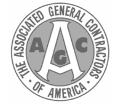Flammable/Combustible Chemical Storage & Fire Protection Tips
The National Fire Protection Association (NFPA) defines a flammable liquid as a liquid with a flash point of 100 degrees F or lower, while a combustible liquid has a flash point of 100 degrees F or higher. Diethyl ether and ethylene oxide are examples of extremely flammable liquids while cooking oils, motor oil and lubricating oils are less dangerous combustible liquids.
If you work with flammable or combustible chemicals in your plant, shop or laboratory, safe storage is essential for your health, safety and fire protection. Follow these basic tips to comply with Houston fire codes and help keep your building safe while storing hazardous chemicals.
Store Your Chemicals Properly
Safe chemical storage begins with creating an accurate inventory. Write out an inventory sheet and keep a copy handy in an easily accessible location. This inventory helps facilitate an accurate appraisal of the danger level in your chemical storage area and can also help emergency responders put out chemical fires more effectively.
During the inventory process, make sure all your chemicals are stored in properly labeled approved storage containers on stable, wall-secured shelving. The storage area should be out of direct sunlight and away from sources of heat. Segregate chemicals that could interact, such as acids and bases or organic materials and oxidizing mineral acids.
Ventilate the Storage Area
Flammable and combustible materials are least likely to cause health problems or fires if they’re stored in a cool, well-ventilated space. The ventilation your storage area requires depends on the amount and type of chemicals stored there. Your building’s existing ventilation controls may be adequate, or you may need to install a system of ducts and hoods to provide sufficient ventilation.
Some chemicals are so toxic that they must be stored and handled in a fume hood or gas cabinet. Constant ventilation helps reduce exposure to fumes or dust emitted by these dangerous chemicals. If you’re not sure about the ventilation requirements for your specific chemicals, check the manufacturer’s instructions, Section 9.5 of NFPA 30 and applicable Houston fire codes.
Install Fire Protection Equipment
So far, these tips have involved ways to prevent a flammable liquid fire. Despite your best efforts, it’s still possible that a blaze could ignite. If this happens, your lab’s fire protection equipment becomes vital for saving lives and reducing property damage. Here’s what your building needs:
- Automatic foam fire suppression system: Flammable liquid fires don’t respond well when water is poured on them. In fact, this dangerous attempt to douse the blaze could have catastrophic consequences. This means, instead of fire sprinklers, your flammable liquid storage area needs an automatic foam fire suppression system, which uses Aqueous Film-Forming Foams (AFFF) to effectively smother flammable liquid fires.
- Fire extinguishers: It’s vital to put fire extinguishing power in the hands of emergency-trained employees. Class B fires describe those started by flammable liquids, making ABC fire extinguishers a potential choice for your chemical storage area. However, other dry chemical fire extinguishers may work better, depending on the specific chemicals you store.
- Fire alarm system: Flammable and combustible chemicals can spread fire extremely quickly. For this reason, quickly alerting everyone in your building of danger is critical for a safe evacuation. Fire alarms spread the word with blaring sirens and strobe lights. Monitored systems also alert the fire department to automatically dispatch help to your location.
If you need help selecting, installing, testing, repairing or replacing fire protection equipment, Kauffman Co. is proud to provide these services in the Houston area. To learn more about our fire protection services, please contact us online or call us at (713) 893-1090 today.















